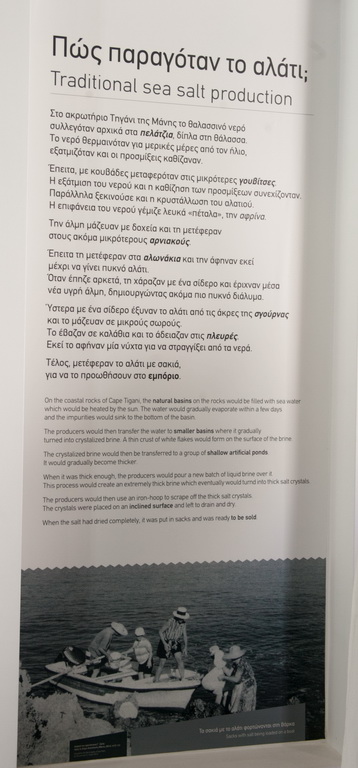Β72 - Sacks with salt being loaded on a boat
On the coastal rocks of Cape Tigani, the natural basins on the rocks would be filled with sea water
which would be heated by the sun. The water would gradually evaporate within a few days and the impurities would sink to the bottom of the basin.
The producers would then transfer the water to smaller basins where it gradually turned into crystalized brine. A thin crust of white flakes would form on the surface of the brine.
The crystalized brine would then be transferred to a group of shallow artificial ponds.
It would gradually become thicker.
When it was thick enough, the producers would pour a new batch of liquid brine over it.
This process would create an extremely thick brine which eventually would turn into thick salt crystals.
The producers would then use an iron-hoop to scrape off the thick salt crystals.
The crystals were placed on an inclined surface and left to drain and dry.
When the salt had dried completely, it was put in sacks and was ready to be sold.



